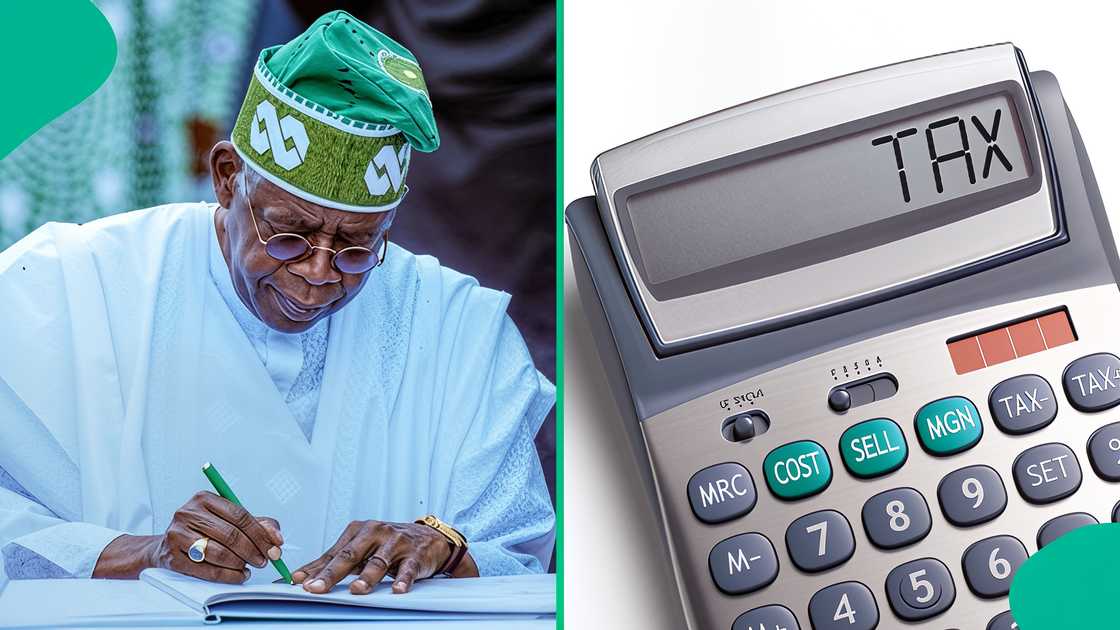Nigeria’s VAT Revenue Rises to Over N1.9trn in Q4 2024, 10 Sectors Highest Contributors
- The NBS has announced that the federal government recorded an increased VAT payment from local and foreign companies
- The new figures released on its latest VAT report also showed the sectors with the highest contribution
- Manufacturing contributed the largest share of VAT in the quarter at 25.89%, followed by information and communication
Legit.ng journalist Dave Ibemere has over a decade of experience in business journalism, with in-depth knowledge of the Nigerian economy, stocks, and general market trends.
The National Bureau of Statistics (NBS) said Nigeria’s Value Added Tax (VAT) collections rose to N1.95 trillion in the fourth quarter of 2024.
This is a 9.23% increase from N1.78 trillion in the previous quarter, driven by higher receipts from domestic and foreign transactions.
On a year-on-year basis, VAT collections surged 62.19% from the N1.20 trillion recorded in the same quarter of 2023.

Source: UGC
Additionally, the total amount of VAT collected for the full year 2024 was N6.72 trillion, a significant 84.69% increase from N3.63 trillion in 2023.
Breakdown of VAT collected Q4, 2024
Domestic VAT payments accounted for N917.40 billion, non-import foreign VAT payments for N554.68 billion, while import VAT contributed N474.75 billion.
Activities of extraterritorial organisations and bodies posted the fastest quarter-on-quarter growth at 180.05%, followed by agriculture, forestry and fishing at 70.83%, and human health and social work activities at 46.13%.
By contrast, VAT from activities of households as employers fell 28.97%, while the information and communication sector declined 23.00%.
Manufacturing contributed the largest share of VAT in the quarter at 25.89%, followed by information and communication with 16.18%, and mining and quarrying at 15.52%, Punch reports.
The lowest contributions came from activities of households as employers at 0.01%, and both extraterritorial organisations and water supply, sewerage and waste management at 0.04% each.

Source: Getty Images
Snapshot of VAT collections in the full year of 2024
The bureau stated that Manufacturing emerged as Nigeria’s highest Value Added Tax (VAT) contributor in 2024, followed by Information and communication.
Here is a breakdown
- Manufacturing – N803.53 billion
- Information and communication – N597.65 billion
- Mining and quarrying – N556.19 billion
- Public administration and defence, compulsory social security – N346.46 billion
- Financial and insurance activities – N303.44 billion
- Wholesale and retail trade, repair of motor vehicles and motorcycles – N196.96 billion
- Other service activities – N107.26 billion
- Transportation and storage – N104.95 billion
- Administrative and support service activities – N47.22 billion
- Accommodation and food service activities – N46.62 billion
Report exposes how 99% of Nigeria's richest evade tax payment
Earlier, Legit.ng reported that A staggering 99% of Nigeria’s wealthiest individuals either evade or avoid paying taxes, leaving millions of citizens struggling to meet basic needs.
This is highlighted in two in-depth reports, "Income and Wealth Inequality in Nigeria: Trends and Drivers" and "Taxing the Rich: Fair Tax Monitor," compiled by Oxfam in Nigeria, the Tax Justice Network Africa, and the Civil Society Legislative Advocacy Centre (CISLAC).
The reports delve into the root causes of inequality in Nigeria, particularly examining income, wealth, gender, and regional disparities.
Source: Legit.ng





